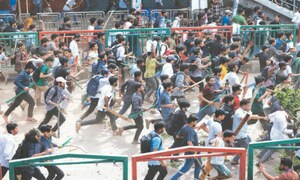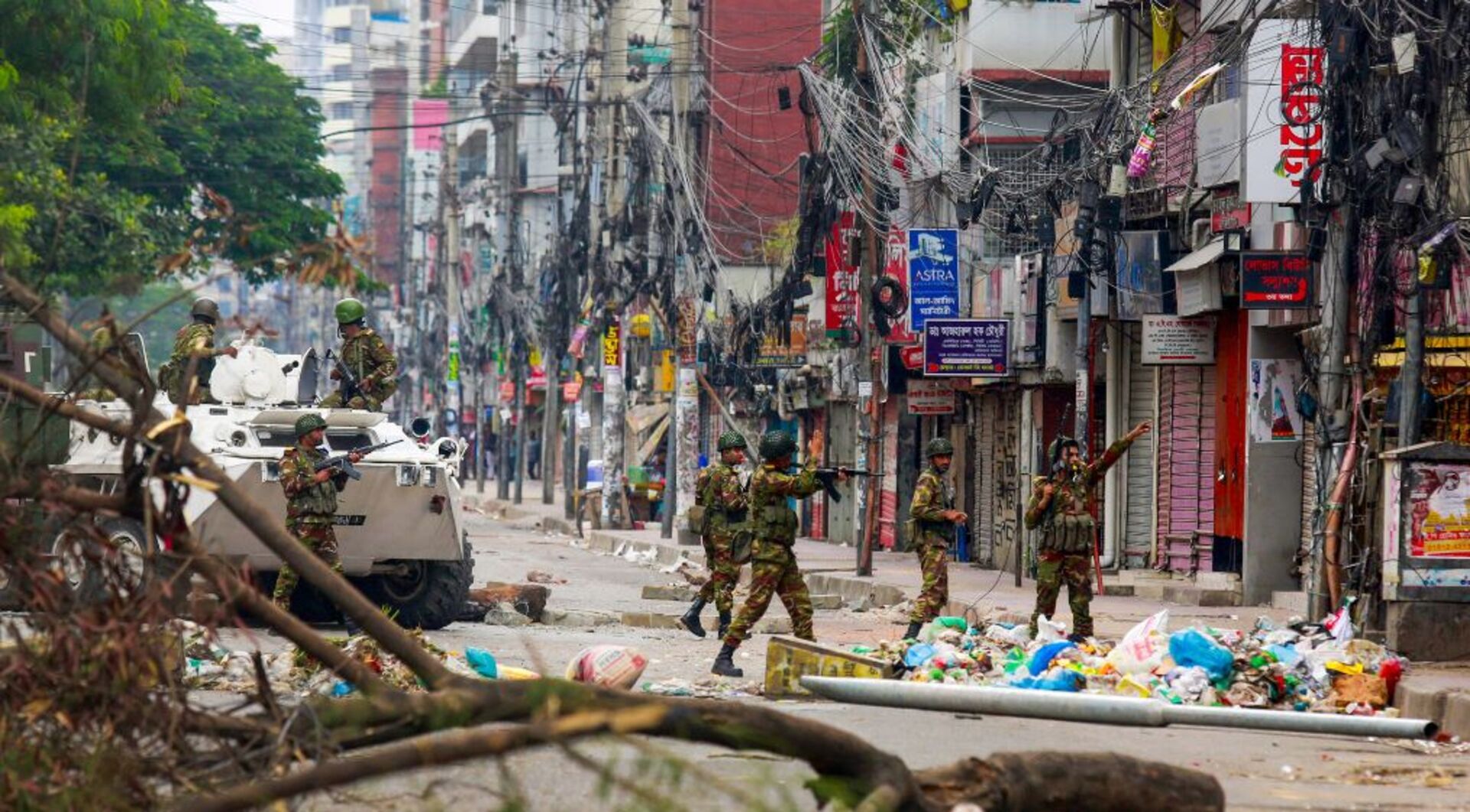US Professors Face Consequences for Supporting Pro-Palestine Campus Protests
Several professors at universities around the US are facing disciplinary actions in regard to their support for the pro-Palestine movement and their students holding protests on college campuses.
At Columbia University, Katherine Franke, law professor and the director of the Center for Gender and Sexuality Law at Columbia Law School, is currently under investigation at the school over an interview she gave early this year. Last week, she announced she had filed a complaint against a law firm she retained after it dropped her as a client.
You may be interested
Maura Finkelstein, a tenured associate professor of anthropology at Muhlenberg College, a private liberal arts college in Allentown, Pennsylvania, was fired in May over a social media repost on Instagram that a student complained about. She has appealed her termination.
Ruha Benjamin, a professor of African American studies at Princeton University, is being investigated by the university for her pro-Palestine activism at the same timethe institution touts her MacArthur genius grant.
Related: Tensions simmer – but don’t boil over – as Columbia students return to campus
These are just three examples of professors facing consequences for supporting the student movement against Israel’s war in Gaza that roiled campuses during the last school year, and prompted scores of new university restrictions on protest.
Academic Freedom Under Fire: Concerns Over Disciplining Professors for War Speech
“Reports of professors being investigated and disciplined for speech about the war are disturbing. The purpose of universities is to stimulate debate, including on controversial topics,” said Ramya Krishnan, senior staff attorney at the Knight First Amendment Institute at Columbia University.
“It severely undermines that purpose when universities act as roving censors that can punish faculty’s private political speech. Professors should be able to speak as citizens without retaliation except in the rarest of circumstances – that is, unless their speech compromises their ability to do their jobs.”
In the case of Franke, the Columbia professor, the investigation was sparked by comments she made on Democracy Now!, expressing concerns about former Israeli soldiers studying at Columbia. “Columbia has a program with older students from other countries, including Israel. It’s something that many of us were concerned about because so many of those Israeli students who then come to the campus are coming right out of their military service,” she said. “And they’ve been known to harass Palestinian and other students on our campus, and it’s something the university has not taken seriously in the past.”
Two colleagues in the law school filed a complaint about the interview, alleging Franke was creating a hostile environment for Israeli students. She was also denounced by the Columbia University president during a congressional hearing in April.
Franke’s comments stemmed from an incident where pro-Palestine protesters were sprayed with a chemical, later claimed by the university to be fart spray. The student and former IDF soldier who sprayed the chemical was suspended and is currently suing the university.
“I’ve been at Columbia since the late 1970s and protest is something that is not only common at Columbia and Barnard, but is actually something we celebrate about our campus,” Franke told the Guardian. “It has been astonishing to see how the university leadership has not stood up for the university and the academic enterprise, it has instead attacked that great enterprise.”
Columbia University declined to comment.
Amidst the investigation, Franke said the law firm she retained, Outten & Golden LLP, dropped her without cause in July 2024. Her attorney at the firm resigned in protest and Franke filed an ethics complaint against the firm last month, arguing it has left her at a significant disadvantage in the case, up against a large law firm retained by the university.
Adam Klein, managing partner at Outten & Golden LLP, said in a statement that the firm’s decision to drop Franke was due to a policy change and claimed the firm did not violate any ethics rules: “Given the unique nature of the Israel-Gaza conflict and the immense passion and pain it can conjure, our firm ultimately chose not to handle any employee speech matters related to the conflict.”
‘A culture of fear’
Several other professors around the US are currently facing investigations, criminal charges and suspensions over pro-Palestine speech. Many of them are tenured, which affords them some measure of due process.
Tiffany Willoughby-Herard, a UC Irvine professor of global and international studies, was charged with three misdemeanor counts, including allegedly resisting arrest, surrounding a pro-Palestine protest in May 2024.
At MIT, professor Michel DeGraff has received letters of reprimand and a pay raise has been withheld after a dispute with his department over his request in December 2023 to teach a course on the Israeli-Palestinian conflict.
The Northwestern University journalism professor Steven Thrasher was suspended and is currently under investigation after he was charged by police over the summer for attempting to protect students from arrest at their protest encampment. The charges against him were ultimately dropped, but he is still suspended.
Finkelstein, the tenured professor at Muhlenberg, was fired after sharing a post by the Palestinian poet Remi Kanazi. She is the first tenured professor to be fired in the aftermath of the 7 October 2023 attack and the first professor fired since 2014 over criticism toward Israel.
Challenging Zionism: Kanazi’s Call to Action and Its Controversial Implications
“Do not cower to Zionists,” Kanazi wrote in the post on 16 January. “Shame them. Do not welcome them in your spaces. Why should those genocide loving fascists be treated any different than any other flat out racist.”
The college determined the resharing of the post violated the school’s equal opportunity and nondiscrimination policies.
An online petition that called for her firing accused Finkelstein, who is Jewish, of bias against Jewish students for posts and comments that criticized Israel.
“It felt very dangerous for me to be on campus, because I was being doxed, people were publishing where my office was, and I was getting a lot of hate mail and threats of violence online,” Finkelstein said. “And at no point did it feel as though the college was trying to protect me.”
Finkelstein was placed on administrative leave in January 2024 and was informed in May 2024 that she was fired. She is arguing in her appeal that the university conflated antisemitism with anti-Zionism in claiming the post constituted harassment against Jewish students.
Faculty and alumni at the college launched a petition last week blaming the college for a “culture of fear and authoritarian restriction of freedoms”, citing Finkelstein’s “unjustified disappearance from our campus”. Another petition and open letter has called for an international boycott of Muhlenberg if she is not reinstated by 25 October.
A spokesperson for Muhlenberg College did not comment directly on either petition. “Muhlenberg College is deeply committed to freedom of expression and scholarly inquiry,” they said in an email.
They added in response to the firing that “the specifics of this case will remain confidential while it is under review by an elected faculty committee”, which will submit recommendations for the college to decide on.
Related: US students arrested in Gaza campus protests face academic and legal woes
At San José State University in California, justice studies professor Sang Hea Kil has been suspended since May 2024 for her involvement as an adviser to pro-Palestinian student groups on campus, as an investigation that could result in termination remains ongoing.
Kil was co-chair of the Palestinian, Arab and Muslim caucus of the California Faculty Association from October 2023 until she stepped down from the position the day before her suspension.
She is accused of “directing and encouraging students” to violate university policies and “engaging in harassing and offensive conduct and comments directed towards colleagues”. She has denied the allegations, claiming the suspension is part of an academic freedom suppression campaign against her.
Kil argued that prior to the spring 2024 campus protest, there was little acknowledgement of the Israel-Gaza conflict and a culture of fear on campus around speaking out in support of Palestine.
“A lot of these campuses have these lofty mission statements and values that embrace social justice, but I noticed this Palestinian exceptionalism on my own campus and other campuses where there was this blanketing of silence,” Kil said.
She cited campus statements from the university on other conflicts, such as on the war in Ukraine, but said none have been made on the conflict in Gaza.
A spokesperson for San José State University said in an email: “We are unable to comment on any ongoing personnel matters.” Kil’s union, the California Faculty Association, did not respond to requests for comment on the case. Kil has previously criticized the union’s lack of support for her case.
Finkelstein, the Muhlenberg professor who lost her job, urged her colleagues to continue to talk about Palestine. “It’s not shocking to me that our institutions are going to be cracking down on that, but it sets such a terrifying precedent. What is a college or university, if not a place where we can actually talk about these things?”













